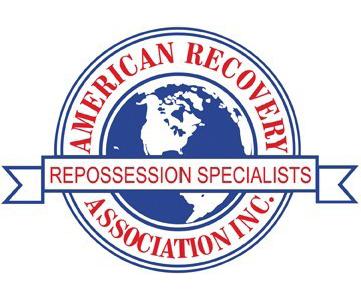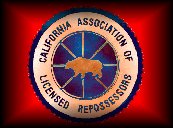


Russ DeWitt, Editor
President, Capital Adjusters, Inc.
Past President, Nat'l Finance Adjusters
Member:
American Recovery Association
Recovery Specialist Insurance Group
Calif. Assn of Licensed Repossessors
Certified Asset Recovery Specialist
Certified Recovery Agent
____________________________
____________________________




REPOSSESSIONS & REMARKETING
Newsletter



Then there was the court case that changed everything: Yvonne Sanchez vs MBank El Paso. In this landmark case the Texas Supreme Court ruled in July 1992 that lenders could not delegate their liability in repossessions simply by hiring an "Independent Contractor" to do the work. In this case MBank El Paso had to pay a $2,000,000 judgment to Mrs. Sanchez because of the illegal acts of the repossession company they hired. (Click the above link see the case the details)
But this created a problem for lenders; particularly those with deep pockets. After this case, lenders, understandably, started demanding larger insurance limits from repossessors. But still this did not help with the liability issue.
To help solve this problem, Jack Barnes, Executive Director of National Finance Adjusters, along with several other industry leaders created the Society of Certified Recovery Specialists and started the first certification course in the industry. Those who met the qualifications and demonstrated their knowledge of repossession procedures and laws by passing a written examination, became Certified Collateral Recovery Specialists or CCRS. I was one of the first to become so certified.
Since then the CCRS program has continued to be updated and two other national certification courses have been created. One evolved from the licensing laws created in Florida and has since become one of the most widely recognized national courses in the industry, the Certified Asset Recovery Specialist or CARS program, provided by Matrix Educational Systems. The other was created by an attorney from Recovery Specialist Insurance Group (RSIG), called the Recovery Specialist Certification Course. This course is unique in that it is a state-specific certification course. Its graduates are identified as Certified Recovery Agents or CRA.
I have done each of these certification courses and I can say that they are all good. Any of them will thoroughly train a person in the laws and procedures of repossession.
Imagine you are in a court room and your institution is being sued for wrongful repossession or some other illegal act committed by your repossession agent. The prosecuting attorney asks, "Mr Jones, what due diligence did your institution undertake to insure the repossession company you hired was qualified to act in a proper and legal manner in handling this repossession for you?" What is your response? "Their brochure said they were the best," or "Mr Smith at XZY Bank recommended them as a good company," or "They have been doing repossessions for us for years," or "They gave the best rates," ... ? You can see the problem.
Now let's take the same scenario above but with this response: "Mr Jones, what due diligence did your institution undertake to insure the repossession company you hired was qualified to act in a proper and legal manner in handling this repossession for you?" And you say, "Well sir. This company has been in business for over 30 years, they are members of a National Repossession Association, they are insured for 3 million dollars and have a 5 million dollar dishonesty bond. They provided us with a list of references and their personnel have all gone through training in an industry-recognized certification course training them on the laws and accepted procedures of the industry."
Of course if you used such an agency, chances are you wouldn't be sitting in a court room in the first place. But, if you were, the section in bold above would make all the difference in proving that you took every precaution to make sure the agent you used was qualified and would act within the law.
Certification is vital for two reasons. One, as the potential for libelous actions is so great in this industry, there has to be a way to effectively train recovery agents. If your recovery agent does not know the laws and does not know what he is doing, you could be setting yourself up for some very expensive litigation. And two, if you do end up in court because of the actions of a repossession company, it is vital to be able to show that you made every reasonable effort to ensure you were using a qualified, competent agent. Otherwise you could end up like MBank El Paso.



WHY CERTIFICATION
WHY CERTIFICATION
When I started in the repossession business in 1974, there were no certification courses. I learned the business by riding around as a helper for several years with the owner of the company. Later, in 1991 there was a Repossessor's Manual put out by the California Association of Licensed Repossessors which gave general procedures for doing repossessions in California, but that was all.
CAPITAL ADJUSTERS REPORTS
Information on Repossession and Remarketing Issues
June 2011
